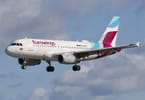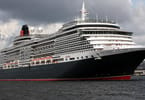LONDON – Policies unveiled by the new ruling coalition government in the U.K. Wednesday will prove a mixed bag for the air transport industry, with the previous government’s plans for a new runway at Heathrow airport now scrapped, while airlines will be taxed per plane rather than per passenger.
The previous Labour government had approved plans for a third runway at Heathrow, London’s main airport that is owned by Spain’s Grupo Ferrovial SA. The airport, the world’s busiest international passenger airport, is running at 98% capacity and Labour had backed calls from airlines and the business community that an expansion was necessary to contribute to economic growth. However, the new Conservative and Liberal Democrat coalition has backed arguments by environmentalists that a third runway isn’t necessary if a better high-speed rail link is built linking parts of the U.K.
The coalition has pledged to establish the high-speed rail network and has refused to consider new runways at London’s Gatwick and Stansted airports, effectively blocking any substantial increase in air-traffic in southeast England.
The move is bad news for Ferrovial’s U.K. airports group BAA Ltd., which had hoped the third runway would help drive revenue growth at Heathrow.
Since Ferrovial bought BAA in 2006 for GBP10.3 billion, taking on a large debt to fund the purchase, the Spanish company has faced several hurdles. It sold Gatwick airport and is being forced to sell one of its Scottish airports after the U.K.’s antitrust regulator ruled that it was too dominant in U.K. airports. BAA originally owned seven U.K. airports, including Heathrow, Gatwick and Stansted.
“We will work with the new government to ensure that airports policy provides the strong international trading connections on which the U.K.’s jobs and future competitiveness depend,” said a spokeswoman for BAA.
The end of plans for a third runway at Heathrow will be a blow to legacy airlines, which had been keen to expand capacity at an already-congested airport.
British Airways PLC “remains of the view that a third runway at our national hub airport, Heathrow, would have very substantial economic benefits for the whole of the United Kingdom,” said a spokesman for the airline. “The incoming government is well aware of our view but has taken a different position.”
However, BA, which is based at the airport and holds the most takeoff and landing slots of any airline, is in the process of merging with Spanish airline Iberia Lineas Aereas de Espana SA and can now focus on growing at Madrid airport, which has excess capacity.
The BA spokesman said the airline is “content for matters to rest there,” and it looks “forward to working with the new government to play our full part in the U.K.’s economic recovery.”
“As Britain’s only global network carrier, we are committed to providing the best possible international air links to support the country’s businesses and jobs,” he added.
However, there was better news for low-cost airlines and travel companies as the new government pledged to replace the existing tax on passengers flying with a new tax per plane–a move that had been supported by many airlines, particularly those that typically fly fuller planes. Those airlines argued that a tax per passenger unfairly hit more efficient airlines that fill their planes.
“The two government parties have made a firm manifesto commitment to reform the daft Air Passenger Duty, which taxes full planes but not empty ones,” said Andy Harrison, chief executive of low-cost airline easyJet PLC. “It’s now time to act and make Air Passenger Duty a fairer and greener tax without increasing the tax burden on the flying public.”
Meanwhile, TUI Travel PLC has long argued for this change that will reward airlines like Thomson Airways that operates with the highest load factors in the industry, and will incentivise carbon efficient behaviour.
“We are delighted that Government has accepted the force of these arguments,” said TUI Chief Executive Peter Long in an emailed response to questions.
BA was less impressed with the plans.
“Air travel from the U.K. is already the most heavily taxed in the world. We believe that aviation’s impact on climate change is most effectively addressed by the inclusion of airlines within the E.U. emissions trading scheme which will happen from 2012,” the airline said.
“The existing Air Passenger Duty is not used to fund environmental or infrastructure benefits, and there is no guarantee that a flight-based tax would,” it added.
The airline also warned that “increased taxation on the U.K. aviation industry will create a financial incentive for customers to fly via continental hubs rather than direct from or transitting through U.K. airports, which could actually lead to higher emissions as well as financially disadvantage the U.K. travel industry.”
WHAT TO TAKE AWAY FROM THIS ARTICLE:
- However, BA, which is based at the airport and holds the most takeoff and landing slots of any airline, is in the process of merging with Spanish airline Iberia Lineas Aereas de Espana SA and can now focus on growing at Madrid airport, which has excess capacity.
- Wednesday will prove a mixed bag for the air transport industry, with the previous government’s plans for a new runway at Heathrow airport now scrapped, while airlines will be taxed per plane rather than per passenger.
- The end of plans for a third runway at Heathrow will be a blow to legacy airlines, which had been keen to expand capacity at an already-congested airport.






















